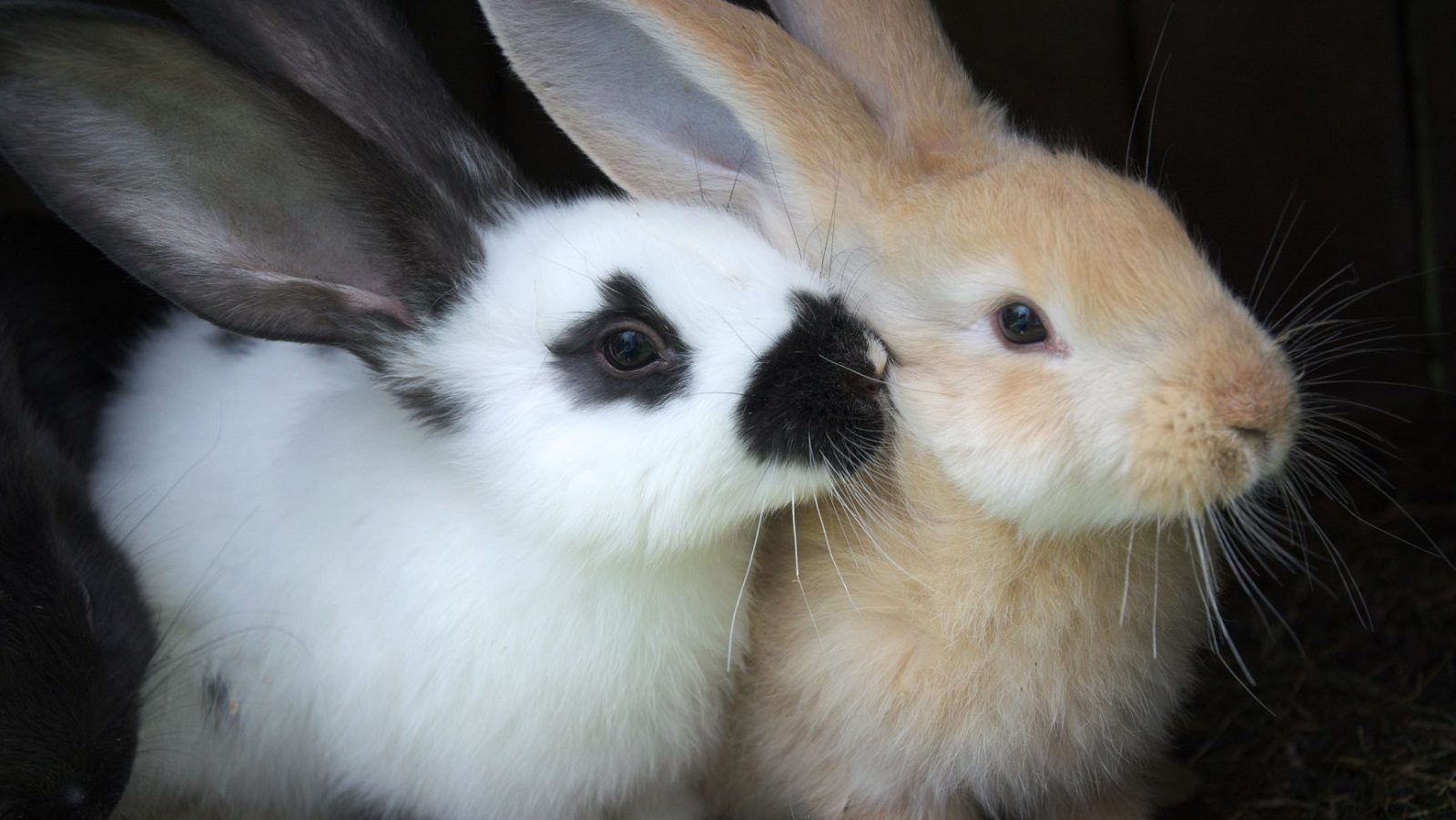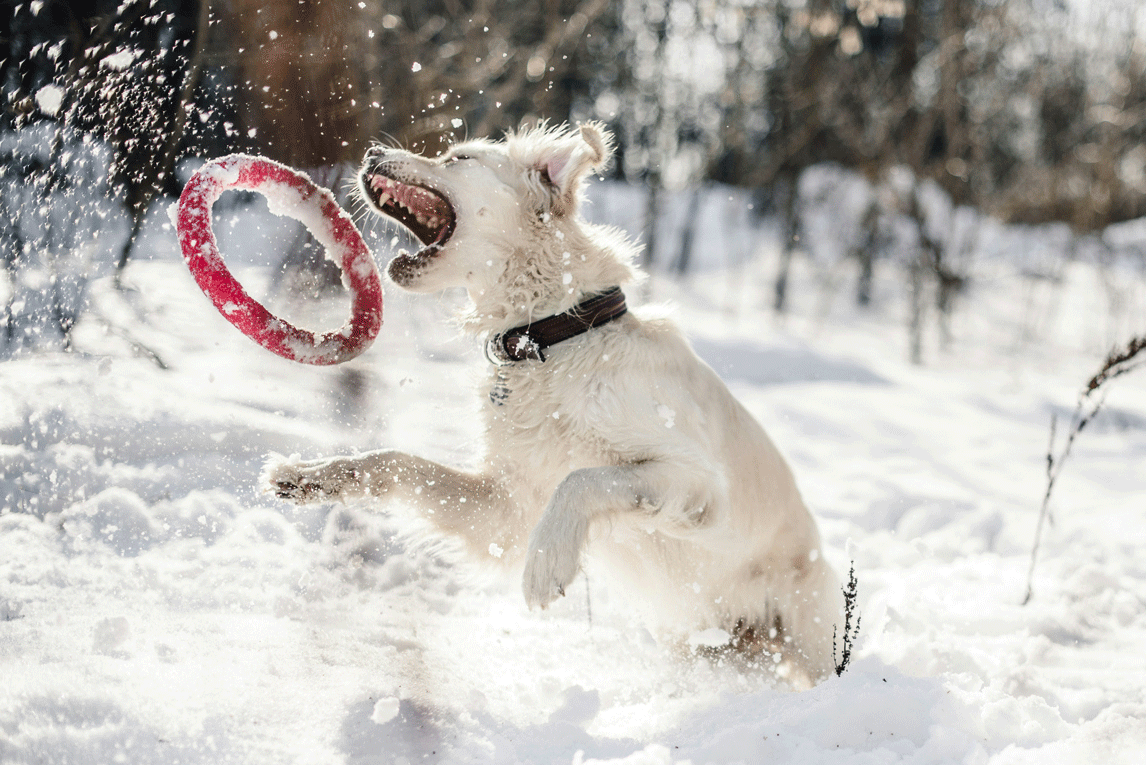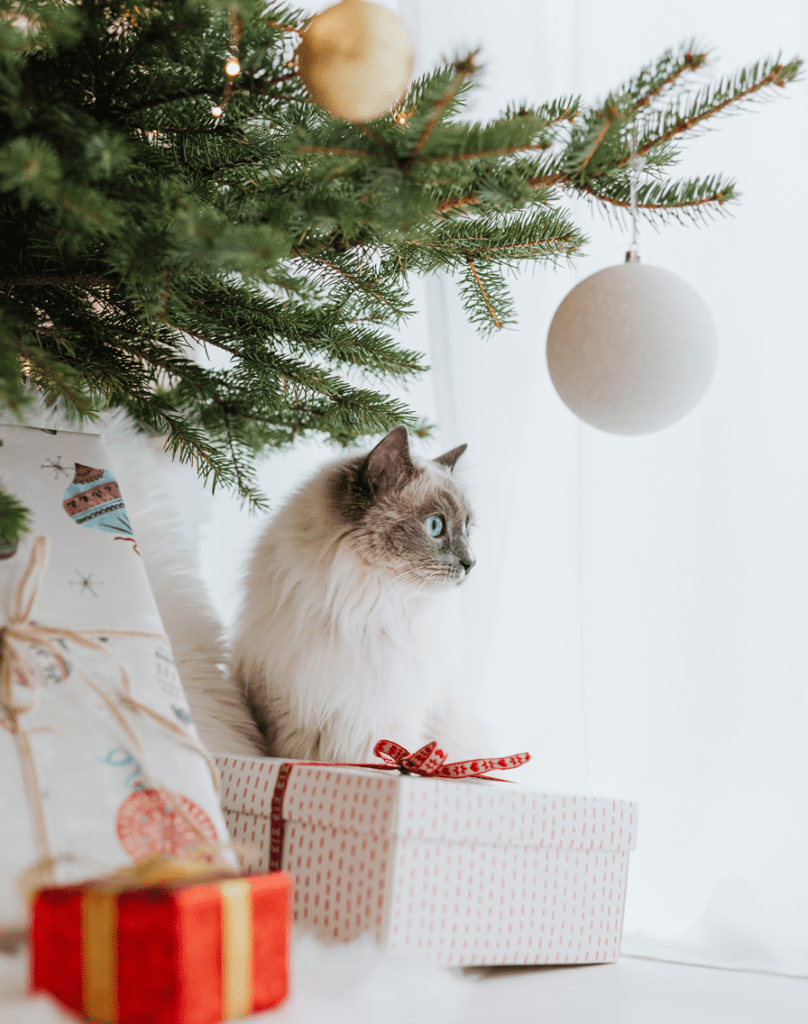
Christmas is a time to celebrate and have fun with family – and that includes our furry friends too! However, our top tip over the festive period is to stick to you pet’s usual routine as much as possible. This may be tricky with so many distractions but your pet will appreciate its usual feeding regimen and daily exercise.
Over the Christmas period, we do need to be extra careful because there are so many human treats around and many are toxic for our pets. Indeed, last year, a survey showed that 82% of vets had seen at least one case of toxic ingestion over the Christmas break and 94% of vets had seen at least one case of chocolate poisoning in dogs that year.
Here we have listed our top tips to help you avoid an emergency trip to the vets this December:
1. Chocolate and Sweets
Even small amounts of chocolate can be extremely dangerous causing vomiting, diarrhoea and sometimes more severe problems. Xylitol (found in sugar-free treats) and liquorice are also poisonous. So, avoid putting chocolate or sweets under the tree, don’t use treats as decorations and keep advent calendars out of reach.
2. Raisins and some nuts
Grapes and their dried products (currants, sultanas and raisins) plus macadamia nuts are toxic to dogs. These are common ingredients in Christmas foods such as Christmas cake, pudding and mince pies. Onions are another watch-out as can cause upset stomach.
3. Alcohol
Alcohol can have a similar effect in pets as it does in their owners when drunk in excess. In severe cases they can become wobbly and drowsy. Pets may help themselves to any unattended alcohol left lying around over Christmas, so don’t leave half full glasses lying around.
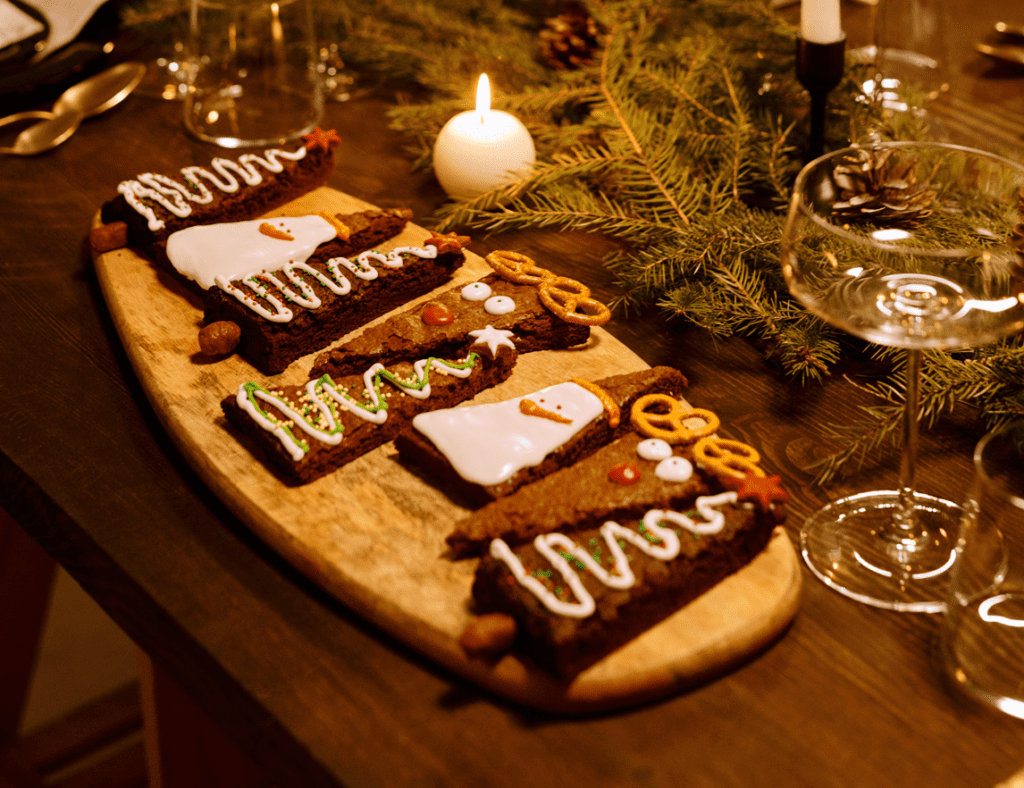
4. Human Food left overs
The nutritional requirements of cats and dogs are very different to those of humans. Human food can be too rich and fatty for our pets to digest, and may have serious consequences on their health. For example, Christmas left-overs can cause sickness and diarrhoea. Plus, cooked bones can splinter and puncture the digestive tract. If you do want to treat your pet, use specially formulated commercial treats. As a guide, no more than 10% of a pet’s calorific intake should come from treats.
5. Tinsel and Tree decorations
Pets love to play and festive decorations such as baubles, tinsel, tree lights plus wrapping paper and ribbon can seem like attractive playthings to curious pets. However, they can be very dangerous if broken or ingested. Also, be extra careful to keep batteries somewhere safe.
6. Poisonous Plants
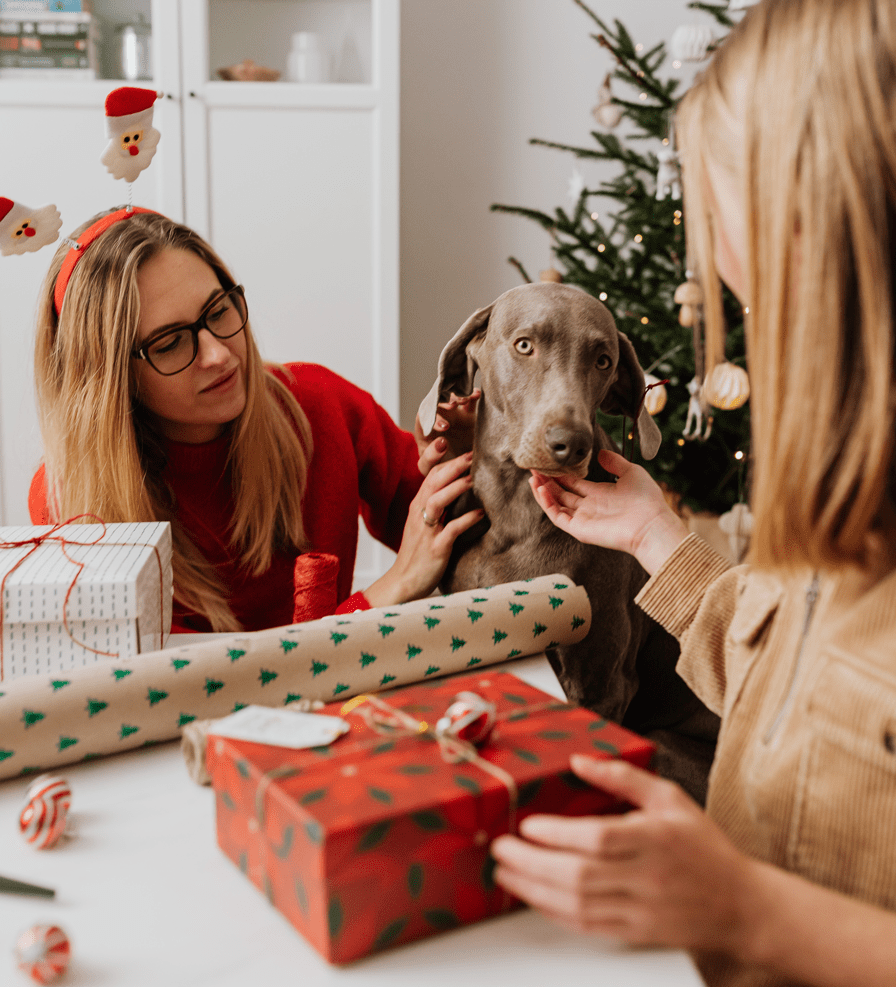
Poinsettia, holly, mistletoe and ivy are toxic to cats and dogs causing stomach upset. Watch out for the sharp needles on Christmas trees too.
Check with your vet:
However careful you and your family are to keep your pets away from danger, unfortunately, accidents do happen. If you are concerned that your pet has eaten something they shouldn’t, consult your vet straight immediately.
Extra Reading:
